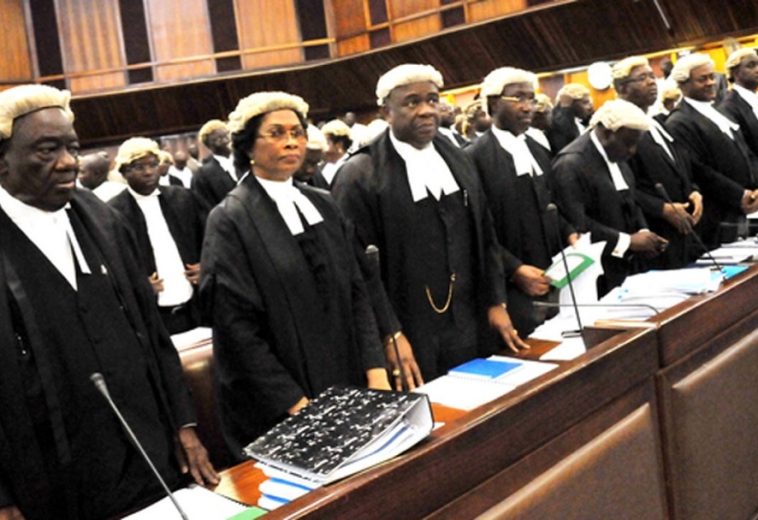As Africa moves forward, democracy—like a delicate yet resilient plant—continues to take root across the continent. From bustling cities to remote villages, African voices increasingly echo global calls for accountability, freedom, and governance that truly reflects the will of the people.
While the continent has shown progress, its democratic journey faces significant challenges that test the resilience of its institutions. With 54 nations navigating unique paths, the pursuit of deeper democracy is shaped by youthful dynamism, complex socio-economic factors, and growing international partnerships. Here is an exploration of the road ahead for Africa’s democratic future.
Read Also: http://democracy Corner: How Africa’s Young voters are shaping Demo racy
Current Pulse of African Democracy
Democracy in Africa presents a mosaic of successes and challenges, ranging from thriving systems to persistent setbacks. Countries such as Ghana, Namibia, and Botswana exemplify strong democratic traditions. Ghana, for instance, has earned international acclaim for its peaceful elections and orderly power transitions since re-establishing democratic governance in 1992.
Conversely, nations like Mali and Burkina Faso have experienced significant democratic backsliding, marked by recent military coups that disrupted civil governance and exposed fragile political foundations.
According to Professor Nic Cheeseman, a specialist in African democracy at the University of Birmingham, “Africa is not monolithic in terms of democracy. While some countries have established democratic systems with vibrant opposition parties and civil society, others face consistent struggles with authoritarianism and instability.” This uneven progress, he notes, is “a natural part of democratic growth, as different nations face unique historical and socio-political challenges.”
The Ibrahim Index of African Governance paints a clearer picture of this uneven progress. While over half of African countries have improved in electoral processes and accountability, others remain entrenched in authoritarian practices, with civil liberties severely curtailed. This diversity reveals both the resilience of democratic ideals and the need for targeted reforms that resonate with citizens’ aspirations.
The Rough Road
As African nations strive for stronger democratic systems, several core challenges must be addressed. Political instability, economic hardship, and foreign influence each play a critical role in shaping Africa’s democratic journey.
Political instability and coups
Political instability is one of the most immediate threats to democracy in Africa. TThe recent surge in military coups—particularly in West African nations like Guinea, Mali, and Sudan—has undermined democratic processes, sparking domestic unrest and international condemnation.
These coups highlight the vulnerability of young democracies to internal conflicts and a lack of trust in electoral processes. According to Dr. Joseph Sany, Vice President of the Africa Centre at the United States Institute of Peace, “military coups often reflect deeper grievances about corruption and a lack of political accountability. However, they are short-term fixes that rarely result in long-term democratic stability.”
The Money Factor
Africa’s economic position also impacts its democratic stability. High levels of poverty and unemployment create fertile ground for political discontent, as frustrated citizens demand leaders who can provide tangible improvements in their quality of life.
Although a speedy recovery was witnessed, the COVID-19 pandemic exacerbated these economic challenges, leaving millions struggling and increasing pressure on governments to deliver economic growth and development. When people feel disenfranchised economically, their trust in democratic institutions can wane, often resulting in social unrest and weakened civic participation.
Africa Development Bank President Dr. Akinwumi Adesina remarked in a 2024 keynote address in London that “Africa’s economic future and its democratic future are intertwined. For democracy to take root, people need to feel that they are not only being heard but that their lives are genuinely improving.” Adesina’s view echoes a growing consensus among African leaders that poverty reduction and inclusive economic growth are essential to maintaining stability and citizen engagement.
Foreign Influence
The continent’s democratic trajectory is not immune to external influences. The continent has long been a strategic interest for powerful nations, and the geopolitical rivalry between global superpowers has created complex dynamics in African democracies. While Western nations advocate for democratic reforms and offer development aid, emerging players like China and Russia bring investments and partnerships with fewer democratic conditions. This dynamic creates a delicate balance for African leaders, who must navigate external pressures while prioritising their citizens’ needs.
Civil society organisations (CSOs) play a crucial role in empowering these youth voices. Across the continent, CSOs advocate for electoral integrity, defend human rights, and provide support in times of crisis. Groups like the African Union (AU) observer missions and regional bodies like
Technology Role
Technology is another powerful force influencing democracy in Africa. Social media has become a platform for political discourse and mobilisation, allowing citizens to demand accountability and transparency from their leaders. Movements like #BringBackOurGirls and #ZimbabweanLivesMatter demonstrate the power of digital activism in uniting citizens across borders to call for change. These platforms have levelled the playing field, providing a voice to ordinary citizens who previously had limited avenues to express their political opinions.
However, technology is a double-edged sword. Some African governments have responded to growing online activism by imposing restrictions, including internet shutdowns during elections or times of unrest. Dr. Rebekah Kendall, a researcher on digital rights in Africa, observes that “While digital platforms empower citizens, they also highlight the need for African countries to strike a balance between security and freedom of expression, ensuring technology serves democracy rather than stifling it.”
African Leadership and Regional Initiatives
Leadership and regional collaboration are fundamental to projecting a democratic future in Africa. The African Union’s African Charter on Democracy, Elections, and Governance (ACDEG) has been instrumental in setting democratic standards across the continent. Signed by numerous African countries, this charter promotes values of rule of law, human rights, and democratic governance. The AU and its partner organisations continue to push for adherence to these principles, strengthening Africa’s collective commitment to democracy.
Several African nations have emerged as success stories, serving as models of democratic resilience. Botswana, known for its stable political environment, has consistently ranked among the highest in governance and democracy indices. Ghana, too, has built a reputation for peaceful power transitions and a robust electoral system. Dr. Michael Amoah, a Ghanaian political analyst, asserts that “Ghana’s success illustrates that African democracies can thrive with sustained commitment to democratic principles and institutions.”
Greater Regional Collaboration
Regional alliances such as the AU, ECOWAS, and the Southern African Development Community (SADC) are likely to continue playing significant roles in bolstering democratic stability. Through election monitoring, sanctions on unconstitutional governments, and support for peaceful transitions, these organisations provide essential mechanisms for upholding democratic norms across borders.
As Africa’s young population continues to grow, so will its influence on governance. Young Africans are not only more likely to demand democratic reforms but also to lead those changes, potentially resulting in a new generation of leaders committed to values of inclusivity, transparency, and human rights.
Towards a Democratic Africa
Africa’s democratic future is as complex as it is promising. The continent stands at a crossroads, with opportunities for unprecedented growth in democratic governance but also with challenges that demand innovative, home-grown solutions.
As other nations look to the future, they have the chance to build democracies that are not only stable and resilient but also deeply connected to the unique cultural, economic, and social realities of the continent.
By empowering its youth, strengthening civil society, embracing technology responsibly, and fostering accountable leadership, Africa can continue to write a story of democratic resilience and progress that inspires the world.


